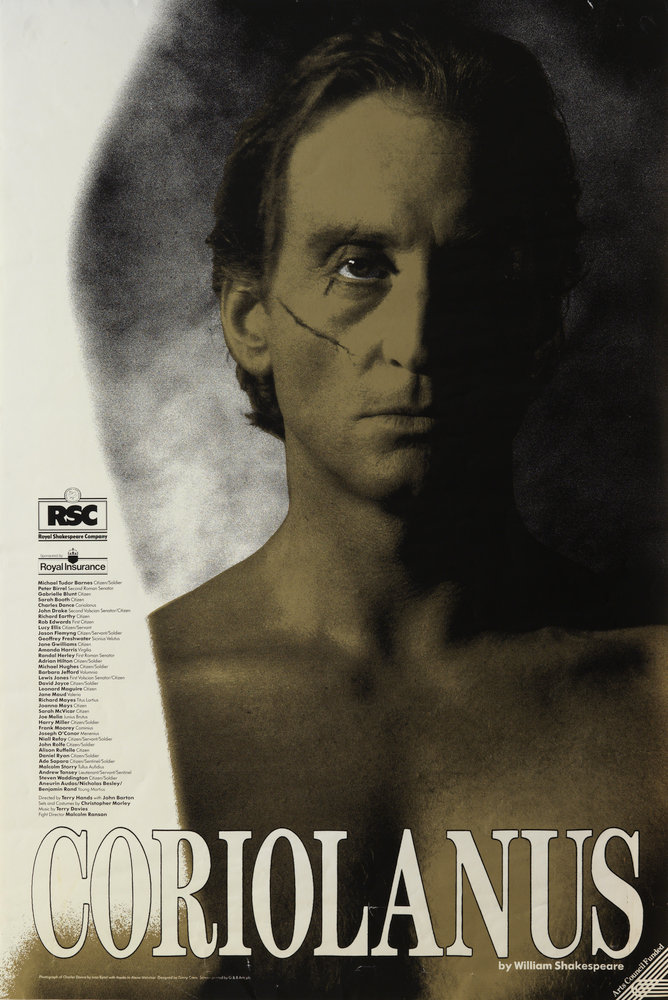Published by ConservativeHome
My name is Caius Marcius, who hath done
To thee particularly and to all the Volsces
Great hurt and mischief; thereto witness may
My surname, Coriolanus…
I was in the Upper-6th. I still remember that Eng Lit class and reciting those words to a horde of A-level Volscians, many of whom really wanted to be Romans, and most of whom were entirely unimpressed by my lilting vowels and crisp, Olivier-like consonants. Shakespeare was my antidote to the interminable Dark Period of teenage angst. At school I could be a Roman, a Greek, a pauper or a king. One day it was virtue and beauty; the next villainy and treachery. There was infatuation and isolation; vengeance and pride; romance and melancholy; and hormonal virility with bouts of exotic cross-dressing trans-sexuality. I lived and breathed blank verse: I was Romeo, Richard, Malvolio and Hamlet. Tomorrow I would be Lear. But, for today, I was Caius Marcius.
I couldn’t have foreseen the following year that I’d be delivering that same speech to the legendary Yat Malmgren and Christopher Fettes for a coveted place at the Drama Centre London; or that a few years later I’d be reciting it at the Globe as part of my “Bardathon” to earn a place in the Guinness Book of Records; or that a few years after that I’d be performing it again for Terry Hands and John Barton to become a member of the Royal Shakespeare Company.
It all came flooding back to me this week when I read the latest expert academic evaluation that Coriolanus apparently constitutes evidence that England’s national poet was not only a “tax dodger” but also a “ruthless businessman” who “stored grain, malt and barley for resale at inflated prices”. Shakespeare, we are told, “exploited famine and faced jail for cheating revenue”, and this play was a way of assuaging his guilt.
The rich getting richer; victimisation of the vulnerable; tax avoidance; monetary obsession; market dominance; ruthless capitalism; exploitation of the poor… he probably opposed immigration and cosied up to the press barons, too. This must make the name of Shakespeare at least as toxic as that of Fred Goodwin. I’m surprised Owen Jones hasn’t yet written an Indy column on Shakespeare the evil Thatcherite ideologue whose poetry inspired the Poll Tax and whose plays demonise the working class.
What kind of artist avoids taxes, exploits the vulnerable and maximises profits at others’ expense – all while writing empathetic plays about the sorry plight of the poor? A hypocritical right-wing one?
O, the gods!
Whatever these scholars may have discovered about Coriolan capitalism in 1607, I’m about as persuaded that Shakespeare was ‘right-wing’ as I am by those who insist he was a recusant Roman Catholic on the basis that the purgatorial ghost of King Hamlet was “Doom’d for a certain term to walk the night” until his foul crimes “Are burnt and purged away”. As entertaining as it may be to speculate on the personal or political autobiography of Shakespeare’s plays, the man is rather bigger than any of them, and more universal than any convenient categorical definition.
As a schoolboy, I was captivated by Coriolanus the intense and isolated fighter; the miserable arrogance and self-conscious superiority that spurns the plebs and scorns compromise. As a young man, spending two years in the play carrying spears for Charles Dance (who, for some reason, always called me “Dormouse”), I was drawn to the humane and inward dignity of the man: he was a product of his upbringing, memorably trapped by the tyranny of custom. And now, in middle age, I am absorbed by the power politics of the play: not whether it constitutes Shakespeare’s political testament with evidence of closet capitalism or “right-wing” attitudes. But how the ‘fast foe to the Plebeii’ needs to cloak himself in humility in order to win their votes; how a candid, honest answer can inflame the crowd in the market place; how patriotic effort can heal societal wounds; and how, time and again, the common people elect a leader ‘that will from them take / Their liberties’.

